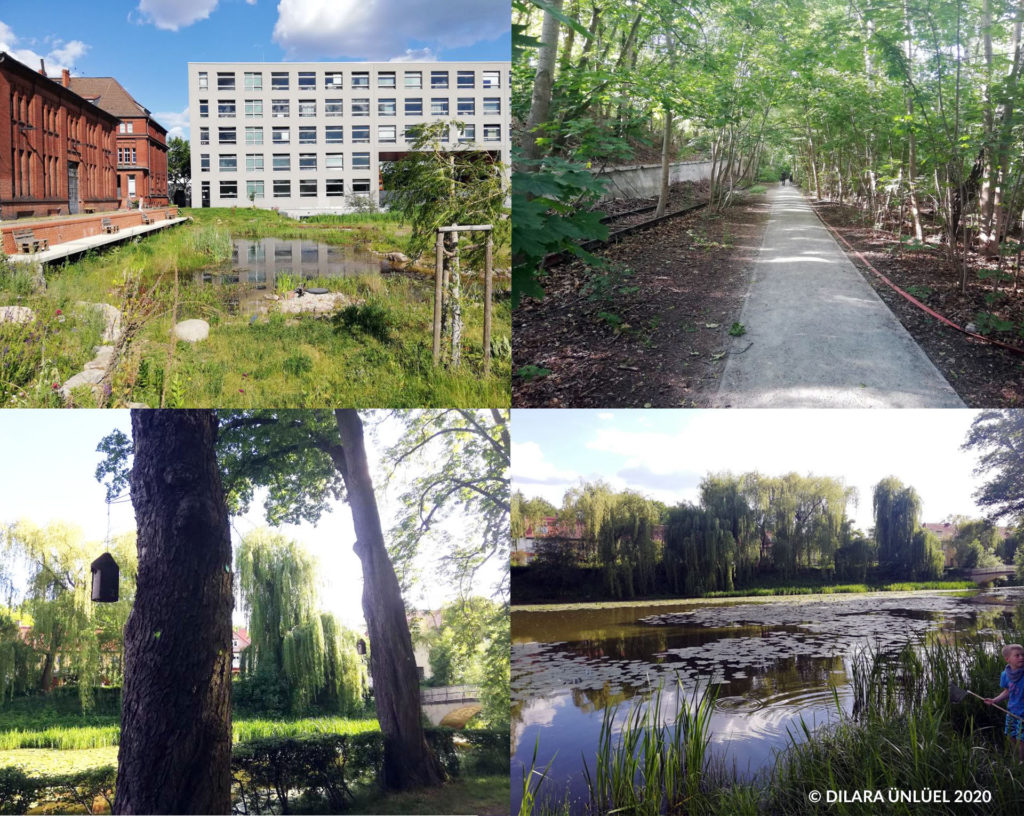
Antonella Radicchi
Architect and Urbanist, PhD
SUSTAINABILITY AND…
Figure above: Nature and the City. Pictures taken in Berlin by the student Dilara Ünlüel © 2020
DESCRIPTION
Seminar: M 6.2 Ökonomie der Stadterneuerung: “Sustainability and Urban Renewal”
TU Berlin, Institute of City and Regional Planning | Summer Semester 2020 & 2021 | online course (2h/w)
Instructor: Dr. Arch. Antonella Radicchi
Currently, there is a growing concern with regard to health and supporting concepts like sustainability, liveability and well-being in science, economy, policy, and planning. More than ever before, those themes are dominating programs of major cities and governments, recently in line with the UN Sustainable Development Goals. These programmes have in common a renovated interest in the “public space agenda”. Hereby, public spaces are considered as key ingredients for creating more socially, economically and ecologically responsible and sustainable cities. Apart from that, there is also increased attention in supra-national organizations (e.g. World Health Organization, European Commission) and their pertinent agendas (e.g. the 7th EC Environmental Action Programme) to align to global challenges of the SDGs and find solutions. Accordingly, a majority of European cities are now implementing policies for sustainable urban planning and design, where aspects of their environmental performance are under particular scrutiny.
Against this backdrop, the aim of this course is to critically reflect on the current debate on Sustainable Cities, by looking at the interface of policy/practice so to assess how sustainability policies have been implemented through urban renewal projects. Berlin will be taken as a case study city and the UN Sustainable Development Goal no. 3 Good Health and Well-Being and no. 11 Sustainable Cities and Communities as a reference. Public spaces will act as a reference spatial framework for the development of this study. Policies and urban renewal projects will be presented, addressing four increasingly relevant themes, i.e. urban noise and quiet areas; nature and the city; artificial light and the urban night; and walkable cities. Students will be encouraged to use neighbourhoods where they live as case studies for the development of the individual fieldwork exercises.
YEAR
Summer Semester 2020, 2021
PARTNER
TU Berlin, Institute of Urban and Regional Planning
